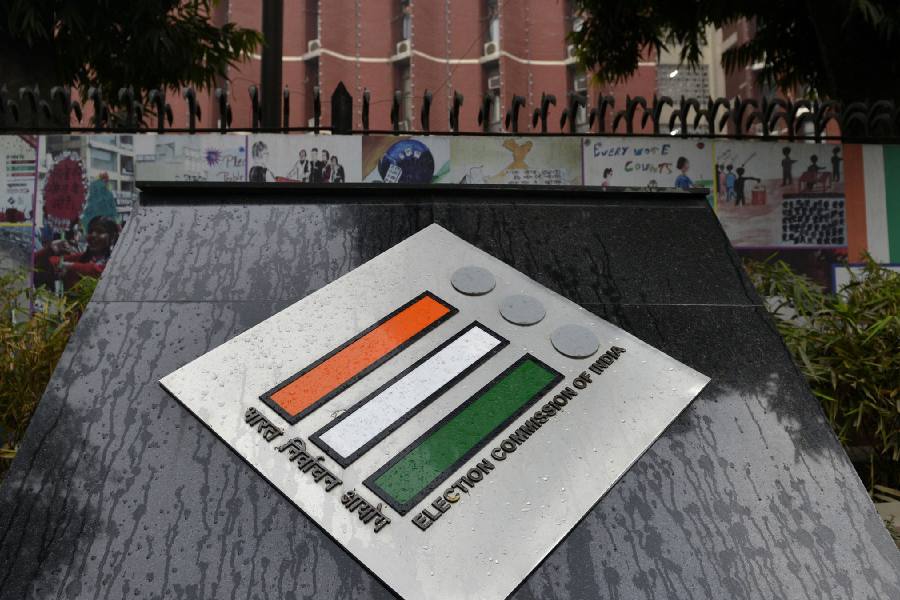A legislation on the appointment of Election Commission members was the biggest highlight of 2023 for the Union law ministry which saw a change of guard this year as Arjun Ram Meghwal took over the reins from Kiren Rijiju.
The year saw the Law Commission working on a formula to synchronise all assembly polls by extending or reducing the tenure so that all state elections can be held along with the Lok Sabha polls from 2029 onwards.
Also, a high-level committee headed by former President Ram Nath Kovind began examining the issue of holding simultaneous elections in the country.
In March, the Supreme Court, while delivering its verdict on pleas seeking a collegium-like system for the appointment of the Chief Election Commissioner (CEC) and election commissioners, ruled that the appointments will be made by the president on the recommendation of a panel comprising the prime minister, the leader of the opposition in the Lok Sabha and the chief justice of India.
It also said the direction on the appointments to the post of CEC and ECs will continue to hold good till a law on the issue is enacted by Parliament, it added.
Since the establishment of the Election Commission on January 25, 1950 -- a day before India became a republic -- there was no law laying down a mechanism for the appointment of chief election commissioner and election commissioners. A law introduced in 1991 dealt with service conditions of the members of the poll panel but not on their appointment.
The Supreme Court order put things in motion and the law ministry came out with a proposed legislation to lay down the procedure to appoint the CEC and the ECs.
However, amid protests by the opposition and former CECs, a slew of amendments were made to the bill, retaining the status of the members of the poll panel equivalent to judges of the Supreme Court and upgrading the status of the search committee.
As per the original bill, the cabinet secretary was to head the three-member search committee. Now, it will be headed by the law minister.
The bill was passed by Parliament during the winter session and it later got the President's assent. The mechanism for the appointment of the CEC and other ECs will come into play when Election Commissioner Anup Chandra Pandey demits office on February 14 on attaining the age of 65.
Pandey is set to retire days before the poll panel is likely to announce the schedule for the 2024 Lok Sabha election and the government may like to fill up the vacancy at the earliest.
The year 2023 also saw the Law Commission under Justice Ritu Raj Awasthi (retd), initiating a fresh consultation process on the Uniform Civil Code by seeking views from the public and religious organisations. The law panel also gave its report on sedition law, underlining its need in the Indian criminal justice system with added safeguards.
In a sudden development in May, the law portfolio was taken away from Kiren Rijiju and handed over to Arjun Ram Meghwal.
While Rijiju was known for triggering controversies by questioning the collegium system of appointing Supreme Court and high court judges and hitting out at the alleged "tukde-tukde gang", Meghwal has refrained from making any such comment so far.
Amid repeated observations by the apex court over the delay in the appointment of judges, as many as 110 judges were appointed in high courts.
The Fast Track Special Courts (FTSC) Scheme was further extended for three more years from April 1, 2023, to March 31, 2026, at a total outlay of Rs 1,952.23 crore. The FTSCs were set up in the aftermath of the 2012 Delhi gang-rape case to deliver swift justice for women and children.
In September, the Union Cabinet approved the third phase of the eCourts Project as a central sector scheme with a financial outlay of Rs 7,210 crore to be implemented over four years. The eCourts Mission Mode Project is the prime mover for improving access to justice using technology.
As part of the National eGovernance Plan, the eCourts Project has been under implementation since 2007 for ICT enablement of the Indian Judiciary. The Phase II of the project concluded in 2023.
Except for the headline, this story has not been edited by The Telegraph Online staff and has been published from a syndicated feed.











